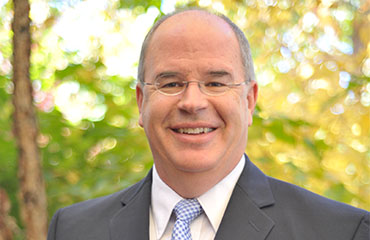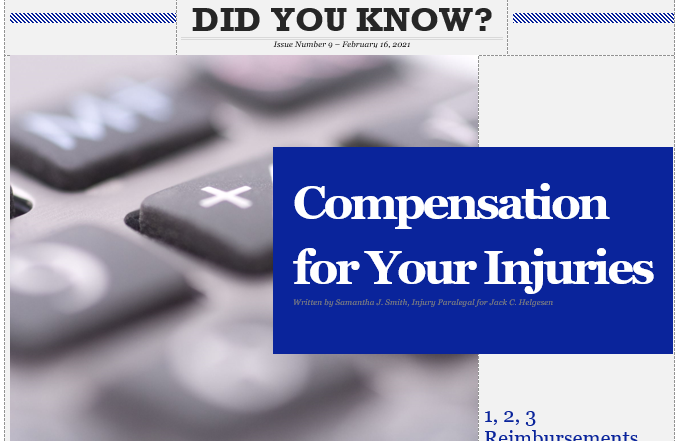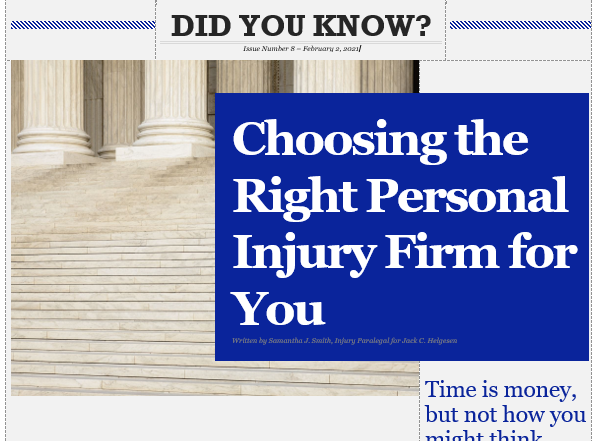Specializing Attorneys
What is estate planning?
Planning for the preservation and transfer of a person’s property after their death is called “estate planning.” A good estate plan includes a will, powers of attorney, a living will (Utah Advance Health Care Directive) and usually a trust.
Who needs estate planning?
Essentially, if you own anything, you should have an estate plan — will, trust, health care directive, and power of attorney.
Attorneys at Helgesen, Houtz & Jones have planned thousands of estate plans for clients in Utah. Our lead estate planner, Jack Helgesen, has a degree in finance. He began his career by planning large estates for retirees in Mesa, Arizona. In 1982, Jack returned to Utah and has continued that work for over 30 years. he writes a regular Utah Elder Law column in Simple Seniors Magazine, including frequent articles on Utah Estate Planning topics. He is a member of the national Association of Elder Law Attorneys (NAELA).
Asset Protection
What is Asset Protection?
Asset protection is part of good estate planning for many seniors. It requires planning to:
- Eliminate or reduce taxes
- Protect your money and property from future creditors
- Protect you from losing your assets because of disability or incompetence
- Anticipate and plan for nursing home or catastrophic medical expenses which might require Medicaid or other public benefits
- Place inheritances you leave to irresponsible children or grandchildren in the hands of safe managers and beyond the reach of creditors
To protect the assets of our clients, our experienced attorneys must understand and apply the Utah Uniform Fraudulent TransfersAct (UFTA), which protects current creditors by prohibiting most transfers for less than their fair value. Applying Utah law, our attorneys find many opportunities for asset protection using the following tools:
- Irrevocable trusts including our own Legacy Trust (trusts which cannot be changed or revoked by their creators)
- Transfers to family members
- Creation of business entities such as corporations, LLC’s and limited partnerships
- Veterans Asset Protection Trusts (to qualify for Veterans Aid and Attendance benefits)
- Special Needs Trusts (for beneficiaries on public benefits such as Medicaid and Social Security Disability
- Utah Domestic Asset Protection Trusts (DAPT) (Under new Utah law effective in May 2013)
We believe the new Utah Domestic Asset Protection Trust (DAPT) is one of the strongest asset protection trusts in America.
Asset Protection Trust
*Price listed above is for the Layton office.
Avoid Utah Probate
Avoid probate with a living trust
The best way for 98% of Utah families (those who do not have to worry about estate tax) to avoid probate is through creation of a Utah “revocable trust,” also called a “living trust.” This arrangement, a trust agreement, has powerful advantages for:
- preserving assets for the surviving spouse
- creating detailed instructions for transfer of assets to the next generation
- providing safe management of assets which preserves the inheritance of irresponsible children, grandchildren, and others
- gives protection and help if a Trustor (creator of the Trust) or a beneficiary becomes incompetent (unable to manage his or her own affairs)
- allows privacy in the management of personal assets
- avoids the need to file probate
In the last 30 years, attorneys at Helgesen, Houtz & Jones have created hundreds of revocable trusts for our clients. We know how to help you! You can contact and meet with our Estate Planning attorneys for a FREE estate planning consultation at either of our two full-time offices. Call us today. You’ll be glad you did. We know revocable trusts!
Fundamentals of a Good Estate Plan in Utah
What should a good estate plan accomplish?
Your “estate” is all of the money and property you own. A good plan for your estate will:
- Preserve your money and property to care for you and your family so long as you live.
- Provide for someone you trust to manage your property if you should become disabled.
- Appoint someone you trust to manage your property after you die.
- Declare your heirs – those people and entities who will inherit your estate after you die.
- Tell your heirs what property you own, which property to sell and which property they should inherit.
- Describe a plan for management of the money and property you leave for heirs who cannot manage it well themselves.
- Avoid estate and income taxes as much as possible.
- Appoint someone to make your medical decisions and give them direction on your end of life decisions
- Promote peace in your family.
What documents make up a good estate plan in Utah?
We recommend these four documents in your Utah estate plan:
1. Last Will and Testament. A Will names the person(s) who will wrap up your affairs after you pass on, names your heirs, and names the guardian(s) of your rminor children. Every Utahn who owns property or has minor children should have a Will.
2. Utah Advance Health Care Directive. This document combines a health care power of attorney (telling who will make your medical decisions if you cannot), and a living will (telling what should be done if you are close to death, cannot make your own decisions, and are unlikely to recover). Every adult in Utah should have an Advance Health Care Directive,
3. A Durable Power of Attorney. This document names your agent(s) to sign your name on financial, government, business and personal matters. A “durable” power is one which continues in effect even you become disabled and cannot make your own decisions. Fo this reason, a durable power of attorney is a critical protection in the event you become disabled. Every adult Utahn who has property to manage should have a Utah Durable Power of Attorney.
4. A Revocable Living Trust. A trust is a an arrangement which allows you to give your property in trust tp someone who will manage your property according to your wishes if you are disabled or pass on. A trust has strong benefits in probate avoidance and protection in the event of your disability. We recommend a trust to most people over the age of forty, and many others.
Utah Health Care Directives
What if you were unable to care for yourself
(Utah health care directive is also commonly referred to as a health care power of attorney)
Many people would agree that planning for the future is a very important part of life. This includes thinking about what would happen if you are ever unable to care for yourself. Health care directives allow you to choose ahead of time the medical treatments you would like to be done if you are unable to respond because of an accident, illness, or aging.
Our attorneys can help you set up a health care directive that can outline your wishes for future medical care. This directive can also designate the person or people you want to look after your care. Without a document like this, your relatives may end up arguing about the best options for you. Don’t let that happen. Take the time now to make sure there are no questions regarding your health care preferences. Call us or visit us today for a free consultation and learn more about health care directives.
Probate and Probate Litigation
Elder law attorneys have special training and experience in Utah probate
Elder law attorneys have special training and experience in Utah probate, the court process for wrapping up the affairs of a person who has died. In Utah, special procedures and rules apply to probate. A Utah Elder Law attorney can help families gain control of the affairs of a deceased person as quickly as possible.
“Probate litigation” refers to court disputes and lawsuits disputing Utah probates, including disputes about wills, inheritances of people who left no wills, appointments of Personal Representatives (executors), accountings and many other issues which arise after a person dies.
Death brings its own pack of legal issues, and sooner or later Utah’s elderly will lose those close to them. The Utah probate process is often confusing, even to lawyers who don’t practice much in probate court. Our elder lawyers will help you sort out these probate issues:
- Is a probate necessary, or can it be avoided?
- What is the quickest and least expensive way through Utah probate?
- How can family fights be resolved or minimized?
- How should the property of a dying person be passed to the next generation with the least trouble?
In probate matters, experience counts.
An experienced attorney may be able to save you thousands of dollars and months, or years of time. Probate can be complicated. We see many unnecessary and unwise filings by inexperienced lawyers. Our Utah probate attorneys have decades of experience. Our Utah attorney probate attorneys, Jack Helgesen and Michael Houtz, have more than 50 years combined experience in complicated Utah probate matters.
Lawyer Assisted Probate
- Includes document preparation and step-by-step instructions on how to submit paperwork to the court.
Uncontested Probate
- Our probate lawyer prepares the documents and submits them to the court for you.
Social Security Disability
Your choices and time limits for a social security disability appeal
Question 1: What are the levels of appeal for Social Security Disability?
There are four levels of appeal for Social Security Disability. The first level after a denial is a Request for Reconsideration. The second level is a Request for Hearing. The third level is a Request for Appeals Council Review. The fourth is taking the claim to the United States District Court.
Question 2: Is the appeals process different for SSDI and SSI claims?
The appeals process is generally the same for SSDI claims and SSI claims. However, for SSI claims when requesting reconsideration, you have the ability to ask for a case review, informal conference, or formal conference.
Question 3: What should I do if my disability benefits have been denied?
You will receive a written letter stating that your claim has been denied or disapproved. If you have received a letter stating that the Social Security Administration has denied your claim, you must understand that you have 60 days to appeal the decision denying your claim. The safest way to compute the 60 day time period is by using the date on the letter denying the claim. The date of the denial is always found in the top right area of the letter. The appeal must be made in writing. There are forms for each type of appeal, except to the United States District Court. I would recommend that you contact an attorney at the time of the first denial so that you can receive help through the process. The attorney can evaluate your case and help you decide on a course of action.
Question 4: What are my choices after I receive a Social Security denial letter?
You have two choices after you receive a denial letter: you can appeal or you can do nothing, and your claim will end because you did not appeal. When you are denied I encourage you to contact me as soon as possible for a free case evaluation. I can explain your options and help you with your case. If you do not appeal within the 60 day time period for appeal, you will likely have to file a new case. If you choose not to appeal, you can generally re-file your claim at a later date.
Question 5: How long do I have to decide to request a reconsideration or request a hearing for an appeal?
A request for reconsideration is an appeal. You have 60 days from the date of your denial to file your request for reconsideration or a request for hearing depending upon which denial you have received. There is additional documentation that must go to Social Security with the request for reconsideration or the request for hearing such as authorization to disclose information forms and the disability report for an appeal. An appeal can be done online or it can be done by mailing the forms in. In our office we do a requ8est for reconsideration online.
Question 6: What can I do if I missed the 60 day period to appeal?
Generally, you must re-file your claim. If there is just cause to explain why you did not file the appeal within the 60 day time period, you may get your claim reinstated. For example, prior to the time for online appeals, I mailed an appeal to Social Security. I kept copies of all of the documents that I mailed to Social Security in my office. When they said they did not receive the appeal and the time for appeal had expired, I mailed documents again to show that we did send them in on time. The appeal was reinstated. If someone was having severe medical problems that could be documented, perhaps including hospitalizations, then Social Security may find just cause to extend the time for appeal. The decision of just cause to file an appeal late is made by the Office of Disability Adjudication and Review when requesting a hearing. The best approach is to file the appeal within the 60 day time period. If you do not appeal on time, for most situations the answer is that you must file a new claim.
How long does it take for a social security appeal to be decided?
Question 7: How long does a Social Security Reconsideration take in Utah?
I wish there was an exact answer for this question. Generally, a request for reconsideration will take from two to four months to be decided, although that can widely vary depending upon the medical records and whether there is a consultative examination. The decision for reconsideration is usually quicker than the initial decision that was made on the claim.
Question 8: How long does a Request for Hearing take in Utah?
After a request for hearing is filed, it takes several months until the hearing is scheduled. For years it was a six month period. It then became more than a year. It is approximately a year until you receive the hearing after filing a request for hearing. If you have exigent circumstances because of your health, the court may give you a priority hearing. This is unusual.
Winning a reconsideration of Social Security Disability benefits
Question 9: Do I need a lawyer to win a request for reconsideration or a request for hearing?
Your chances for winning increase if you have a competent attorney to help you with your case. The attorney knows what information is important to Social Security and can help present the medical and other information in such a way to increase your opportunity to win the claim. The medical records are extremely important, and the attorney can carefully read your records and find the records that help explain your impairments and the severity of your impairments according to your doctors. The attorney is also familiar with the law used to decide Social Security Disability cases.
Question 10: How is a lawyer paid to help me?
Lawyers are paid out of the back benefits that are awarded to you and your family. The government has set the fees which an attorney can be paid. An attorney can be paid 25% of your past due benefits that are awarded to you or your family or $6,000, whichever is less. The judge has to approve the fee agreement between the attorney and the client. Generally the Social Security Administration will pay your attorney directly from your back benefits if you win.
Question 11: How can I increase my chances of winning a request for reconsideration or a hearing?
One of the most important actions to increase your chances of winning a request for reconsideration is to make sure that your file contains all of your medical records. What your doctors have written about your impairments is extremely important to your case. This is considered to be objective medical evidence to prove your disability. Generally, it will be difficult to change the results on reconsideration when you were denied initially. However, the medical evidence is the substantive way to change a decision.
Winning an appeal of Social Security Disability benefits
Question 12: Do I need a lawyer to win an appeal?
No, but It helps to have a lawyer for several reasons. The lawyer is familiar with the law that is used to decide a social disability case which is essential to winning your case. Second, the attorney will become familiar with your medical records and will be able to put together your case to present to the judge, and to analyze the medical evidence and the law. The attorney will frequently write a brief for the judge to explain why you are disabled based upon the medical records and the law. The attorney will also be familiar with the judges and what information is important to your case. If a doctor is willing to write a letter for a patient, the attorney can provide information that would be helpful for the doctor to address in the letter. The attorney can also take time with you to understand the subjective impact of your impairments on you so that you can be prepared for your testimony at the hearing. In all of this, experience counts. We have handled hundreds of social security disability claims over the past thirty years. You must learn the process in your one claim.
Question 13: Do I have to pay my lawyer up front to help me with my appeal?
Social Security disability claims are done on a contingent fee basis so there is no attorney fee unless you win. The attorney fee if you win is set by federal law. The attorney fee is 25% of past benefits that are awarded to you and your family or $6,000 whichever is less. Sometimes an attorney must pay to collect some of your updated medical records from your doctor. These are considered costs and you may have to reimburse your attorney for costs in your case.
Question 14: How is a lawyer paid to help me in an appeal?
The lawyer is paid out of your past due benefits when you win your case. Most lawyers are paid directly by Social Security from your past due benefits so you do not have to worry about paying them.
Other questions about Social Security Disability
Question 15: What does it mean to “reopen” my claim?
There needs to be good cause to reopen the claim. Perhaps there is medical evidence that is relevant to the claim prior to the date the decision was made. For good cause a claim may be reopened and the new evidence considered. The administrative law judge makes the decision about whether to reopen a claim. You may also reopen a claim to a prior application for benefits that were denied if the application did not go to a hearing. Again, the judge decides whether your claim can be reopened. Reopening an prior claim that was made may give you more back benefits.
Question 16: When can I request an Appeals Council review?
If your claim is denied at a hearing by the administrative law judge, then you have 60 days to appeal the written decision of the judge to the Appeals Council. The Appeals Council takes a long time to decide your case, but in many instances it reverses the decision that was made by the judge. If you win your claim at the Appeals Council, your claim is remanded to the same judge for another hearing. You do not get a new judge on your case unless your claim is reversed twice by the appeals council.
Question 17: When can I appeal to federal court?
If your claim to the appeals council is denied, it may be appealed to United States federal court in the state where you live.
Question 18: What are “the listings” in Social Security law?
The listings are the laws used by the Social Security Administration and the judge to decide your case. They are called the “listing of impairments,” and there are separate listings for adults and for children. There are listings for many types of impairments, but there is not a listing for every possible type of medical impairment. The listings are organized according to body systems and types of impairments. For example, there are listings for musculoskeletal impairments which include back and joint problems, speech and special senses, respiratory system, cardiovascular system, digestive system, genitourinary system, hematological disorders, skin disorders, endocrine disorders, congenital disorders that affect multiple body systems, neurological disorders, mental disorders, malignant diseases, and immune system disorders. Under each of these areas there are several listings for different types of impairments.
Question 19: How is a “vocational expert” used in a Social Security Disability hearing?
The judge will have a vocational expert come to your hearing. The vocational expert will identify what types of employment you have done in the past. They consider the 15 previous years of employment as your past relevant work experience. The vocational expert will discuss your case based upon hypothetical questions given by the judge. The hypothetical questions will focus on health limitations that impact your ability to work. The vocational expert will be asked whether a person can work based on impairments, both the number of impairments and the severity, which might be similar to yours. Your lawyer will also be able to ask questions to the vocational expert.
Question 20: How is a “medical expert” used in a social security disability hearing?
The judge may have a medical expert come to your hearing. Some judges use medical experts and some judges do not use medical experts. The medical expert will have had the opportunity to review the medical records that are in your file. The judge will ask the medical expert to state what you impairments are according to the medical records. The judge may also ask the expert whether the expert believes that your impairments meet or equal the listings discussed above individually or by combination of impairments. Your lawyer will be able to ask questions of the medical expert.
Question 21: What is the difference between an SSDI claim and an SSI claim?
Both SSDI and SSI are disability benefits with the following general rules. SSDI stands for Social Security Disability Insurance benefits. It is a benefit which may be received based upon an individual’s work history. You must have a condition which is expected to be disabling for a period of at least 12 months. If there is a work history which qualifies an individual to be considered insured, then that individual may receive SSDI benefits if found disabled under the listing of impairments. These benefits are not income sensitive. An individual receives the monthly benefit based upon work history regardless of whether there is another person bringing income into the household. SSI stands for Supplemental Security Income and it is income sensitive. This benefit is generally available to those who do not have a work history or if the SSDI benefit is very low. Because it is income sensitive, other income that comes to the household from a spouse may offset the SSI benefit. Both disability benefits are decided under the same medical listings, and the decision process is the same.
Utah Trusts
What is a Trust?
A trust is an agreement by one person to accept property and hold it for another person. For example, Bob asks Sam to hold a painting and to give it to Bob’s wife after Bob dies. If Sam agrees, Bob has created a trust with Sam as the trustee. Bob’s wife is the beneficiary.
Who are the parties to a trust?
Utah law applies these terms to the parties to a trust (see Utah Code section 75-7-103:
- Settlor – a person who transfers property (also called a “Trustor” or “Grantor”)
- Trustee – a person who agrees to hold the property
- Beneficiary – a person for whom the property is held
Why are trusts used in estate planning?
Trusts are powerful tools for estate planners. They are ideal for:
- Preserving assets for the surviving spouse
- Creating detailed instructions for transfer of assets to the next Generation
- Providing safe management of assets which preserves the inheritance of irresponsible children, grandchildren and others
- Giving protection and help if a Settlor (creator of the Trust) or a beneficiary becomes incompetent (unable to manage his or her own affairs)
- Allowing privacy in the management of personal assets
- Avoiding probate
What is a revocable Trust?
A revocable trust is one that can be undone (revoked) by the person who created it. A revocable trust (also called a “living trust”) can be amended to meet changing circumstances or desires. The ability to change the trust is a big advantage.
What is an irrevocable Trust?
An irrevocable trust is one which which cannot be undone or amended. Irrevocable trusts have advantages in useful in tax planning, making charitable donations and asset protection.
What is a special needs Trust?
A special needs trust is a useful irrevocable trust for leaving inheritances to a beneficiary who receives public benefits such as social security disability payments or medicaid benefits.
What is an asset protection trust?
Any of the above trusts when written for the purpose of protecting the trust assets against future creditors and taxes can be asset protection trusts.
Last will and testament & living wills
Taking care of those you love after you are gone
A will is essential if you want to have any say in what happens to your property or the care of your minor children after your die. By writing a will, you can decide what will be done with your property and even name a guardian for your young children. This is ideal because we cannot know when an accident or sickness may end our lives prematurely.
Some people assume their family members will inherit their assets automatically, but this is not the case. Without a will, the decisions regarding your assets are left up to the state. This can be a long and costly process. When it is over, the decisions still may not be what you or your family and loved ones would have chosen. Let us help you with the affairs of your estate by drafting a will to protect your assets for your loved ones. Call us today to schedule a free consultation!
Are your wishes clear?
A living will is a legal way to make your wishes regarding your personal medical care and treatment clearly known. This helps eliminate any confusion if you are unable to answer questions about your healthcare. Whether you are unable to respond due to an accident or illness, a living will states your wishes clearly. This leaves no room for doubts and avoids placing pressure on your relatives to make any choices for you.
Utah Wills, Trusts & Estate Planning
Specialized estate planning to protect elders
Probably more than 95% of the wills, trusts, powers of attorney, and estate plans written by lawyers in Utah contain provisions which can actually prevent a person from qualifying for Medicaid nursing home assistance. That is because estate plans are written to avoid estate tax which, for 2014, is expected to be paid only by Americans who have a net worth of more than $5,340,000. Few of us need estate tax planning, but more than one-third of us will spend time in a nursing home.
Elder law attorneys are trained to write unique wills, trusts and powers of attorney which consider the high risks of disability and help avoid the expensive disqualifications and “spend downs” of Medicaid.
Wills — Taking care of those you love after you are gone
A will is essential if you want to have any say in what happens to your property or the care of your minor children after your die. By writing a will, you can decide what will be done with your property and even name a guardian for your young children. This is ideal because we cannot know when an accident or sickness may end our lives prematurely.
Some people assume their family members will inherit their assets automatically, but this is not the case. Without a will, the decisions regarding your assets are left up to the state. This can be a long and costly process. When it is over, the decisions still may not be what you or your family and loved ones would have chosen. Let us help you with the affairs of your estate by drafting a will to protect your assets for your loved ones. Call us today to schedule a free consultation!
Trusts — Creating a living trust
By creating a living trust, you can protect your assets from the costly process of probate. When creating a trust, you name yourself as the trustee or become a co-trustee along with your spouse. Then, you can begin transferring ownership of your assets to the trust. You will also name the person or people you want to inherit your assets when you die. There is no need to worry about any court proceeding or probate.
Some may feel overwhelmed to make such important decisions in a document like a will or a trust. It is comforting to know that the decisions you make in your trust can be changed if needed. Different circumstances may arise which would incline you to change the outline of your trust. Also, wouldn’t you prefer to make these important decisions now with a clear mind rather than leave them up for others to decide after your death?
Our attorneys are available to help you set up a trust that can protect your assets from probate.
Special Needs Trust — Protecting the assets of those with mental or physical disabilities
A special needs trust is a way to protect assets for an individual with a mental or physical disability or illness. Although many Americans try to find ways to save for retirement, they may not always think of their children’s lifelong needs. Children with special needs may never grow to be independent. They may need to continue relying on their parents even after their parents have passed on.
Do You have a question regarding a family will?
If you need to dispute a will, our attorneys are available to help you. Wills and trusts are written with the goal that there will not be any confusion regarding the intentions of the will. However, sometimes a single mistake can change a will’s intent or even make it invalid. We will work with you to discover the facts and the real intentions of the will.
Our estate planning attorneys are available to help you set up a special needs trust for your loved one. This will ensure that their needs are provided for even after you are gone.
Experience Counts
Attorneys at Helgesen, Houtz & Jones have planned thousands of estates for clients in Utah. Our lead estate planner, Jack Helgesen, has a degree in finance. He began his career by planning large estates for retirees in Mesa, Arizona. In 1982, Jack returned to Utah and has continued that work for over 30 years. he writes a regular Utah Elder Law column in Simple Seniors Magazine, including frequent articles on Utah Estate Planning topics. He is a member of the national Association of Elder Law Attorneys (NAELA).
Our Utah estate planning attorneys can help you with the following estate planning needs:
- Utah Wills
- Utah Living Trusts
- Utah Advance Health Care Directives
- Utah Powers of Attorney
- Utah Revocable Trusts
- Utah Irrevocable Trusts
- Utah Asset Protection Trusts
- Utah Legacy Trusts
- Utah Special Needs Trusts
- Good Ways to Avoid Utah Probate
- How to leave an inheritance to irresponsible children
- Other estate planning issues
Will Packages
- Includes Will, Healthcare Directive, and Power of Attorney
Trust Packages
- Includes Trust, Will, Healthcare Directive, Power of Attorney, and Transfer of Deed
*Prices seen above are for the Layton office.











